
Police brutality is the excessive and unwarranted use of force by law enforcement against an individual or a group. It is an extreme form of police misconduct and is a civil rights violation. Police brutality includes, but is not limited to, asphyxiation, beatings, shootings, improper takedowns, and unwarranted use of tasers.
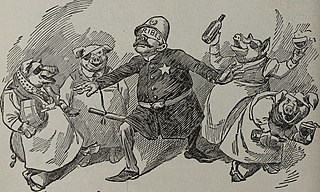
Police corruption is a form of police misconduct in which law enforcement officers end up breaking their political contract and abusing their power for personal gain. This type of corruption may involve one or a group of officers. Internal police corruption is a challenge to public trust, cohesion of departmental policies, human rights and legal violations involving serious consequences. Police corruption can take many forms, such as bribery.
The Commission of Inquiry into Possible Illegal Activities and Associated Police Misconduct into Queensland Police corruption was a judicial inquiry presided over by Tony Fitzgerald QC. The inquiry resulted in the resignation of Queensland's premier, Joh Bjelke-Petersen, the calling of two by-elections, and the jailing of three former ministers and the Police Commissioner Terry Lewis. It also contributed to the end of the National Party of Australia's 32-year run as the governing political party in Queensland.

Law enforcement in Australia is one of the three major components of the country's justice system, along with courts and corrections. Law enforcement officers are employed by all three levels of government – federal, state/territory, and local.

The Queensland Police Service (QPS) is the principal law enforcement agency responsible for policing the Australian state of Queensland. In 1990, the Queensland Police Force was officially renamed the Queensland Police Service and the old motto of 'Firmness with Courtesy' was changed to 'With Honour We Serve'. The headquarters of the Queensland Police Service is located at 200 Roma Street, Brisbane.

The Australian Criminal Intelligence Commission (ACIC) is a law enforcement agency established by the Australian federal government on 1 July 2016, following the merger of the Australian Crime Commission (ACC) and CrimTrac. It has specialist investigative capabilities and delivers and maintains national information sharing systems. ACIC is part of the National Intelligence Community.
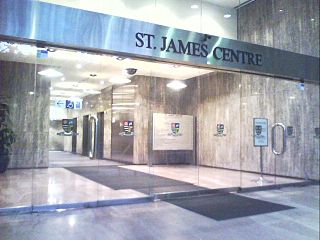
The Royal Commission into the New South Wales Police Service, also known as the Wood Royal Commission, was a royal commission held in the State of New South Wales, Australia between 1995 and 1997. The Royal Commissioner was Justice James Roland Wood. The terms of reference were to determine the existence and extent of corruption within the New South Wales Police; specifically, it sought to determine whether corruption and misconduct were "systemic and entrenched" within the service, and to advise on the process to address such a problem.
The Royal Commission Into Whether There Has Been Corrupt or Criminal Conduct By Any Western Australian Police Officer, commonly known as the Kennedy Royal Commission, was a Royal Commission established in 2002 by the state government of Western Australia to determine whether any officer of the Western Australia Police had engaged in corrupt or criminal conduct. The commission issued an interim report on 20 December 2002 and a final report on 30 January 2004.
Police misconduct is inappropriate conduct and illegal actions taken by police officers in connection with their official duties. Types of misconduct include among others: sexual offences, coerced false confession, intimidation, false arrest, false imprisonment, falsification of evidence, spoliation of evidence, police perjury, witness tampering, police brutality, police corruption, racial profiling, unwarranted surveillance, unwarranted searches, and unwarranted seizure of property.
The Office of Police Integrity (OPI) was the Australian state of Victoria independent police oversight and anti-corruption agency established by the Victorian Government in November 2004. OPI ceased operation on 9 February 2013 and was replaced by the Independent Broad-based Anti-corruption Commission (IBAC). OPI's official role was to detect, investigate and prevent police corruption and serious misconduct and to ensure that police members had regard to the human rights set out in the Victorian Charter of Human Rights and Responsibilities.
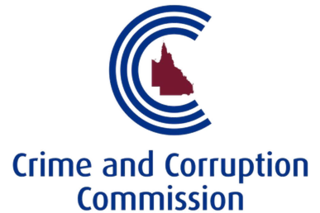
The Crime and Corruption Commission (CCC) is an independent Queensland Government entity created to combat and reduce the incidence of major crime and to continuously improve the integrity of, and to reduce the incidence of misconduct in, the Queensland public sector. Formerly the Crime and Misconduct Commission (CMC) 2002–2014. The CCC also has a witness protection function. The commission was established on 1 January 2002, when the former Criminal Justice Commission and the Queensland Crime Commission were merged into a single entity under the name Crime and Misconduct Commission.

Gerald Edward "Tony" Fitzgerald is a former Australian judge, who presided over the Fitzgerald Inquiry. The report from the inquiry led to the resignation of the Premier of Queensland Joh Bjelke-Petersen, and the jailing of several ministers and a police commissioner. He was the youngest person to be appointed as a judge of the Federal Court of Australia.
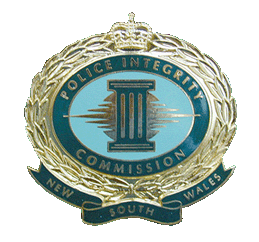
The Police Integrity Commission, was a statutory corporation of the New South Wales Government, responsible for the prevention, detection, and investigation of alleged serious misconduct in the Police Force in the state of New South Wales, Australia. The mission of the commission was to be an effective agent in the reduction of serious police misconduct. On 1 July 2017, the Police Integrity Commission was abolished and replaced by the Law Enforcement Conduct Commission.

The New South Wales Crime Commission is a statutory corporation of the Government of New South Wales. It is constituted by the Crime Commission Act 2012, the object of which is to reduce the incidence of organised crime and other serious crime in the state of New South Wales, Australia.
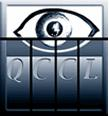
The Queensland Council for Civil Liberties (QCCL) is a voluntary organisation in Australia concerned with the protection of individual rights and civil liberties. It was founded in 1966 in order "to protect and promote the human rights and freedoms of Queensland citizens." The QCCL is regularly asked by the Government to make submissions to committees, which is how bills are made in Parliament. These submissions cover issues such as closed circuit television, abortion law reform, sentencing issues in our court system and changes to legislation already in place, which are called amendments.
Robert Godier Bottom,, better known as Bob Bottom, is a retired Australian investigative journalist and author.
Noble cause corruption is corruption caused by the adherence to a teleological ethical system, suggesting that people will use unethical or illegal means to attain desirable goals, a result which appears to benefit the greater good. Where traditional corruption is defined by personal gain, noble cause corruption forms when someone is convinced of their righteousness, and will do anything within their powers to achieve the desired result. An example of noble cause corruption is police misconduct "committed in the name of good ends" or neglect of due process through "a moral commitment to make the world a safer place to live."
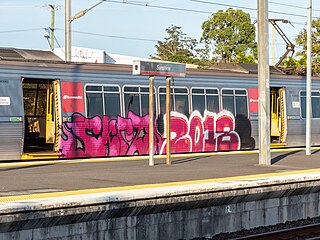
Crime in Queensland is an on-going political issue. Queensland Police is responsible for providing policing services to Queensland, Australia. Crime statistics for the state are provided on their website. Official records show that reported offences against property and people has declined over the past 20 years to 2020. The state has criminal codes for hooning, graffiti, sharing intimate images without consent and fare evasion. Wage theft became a crime in 2020. The minimum age of criminal responsibility in Queensland is 10 years old.
The Law Enforcement Conduct Commission is responsible for investigating allegations of serious misconduct by the NSW Police Force and NSW Crime Commission. It was established on 1 July 2017 to replace the Police Integrity Commission
Philip John Dickie is an Australian journalist.











